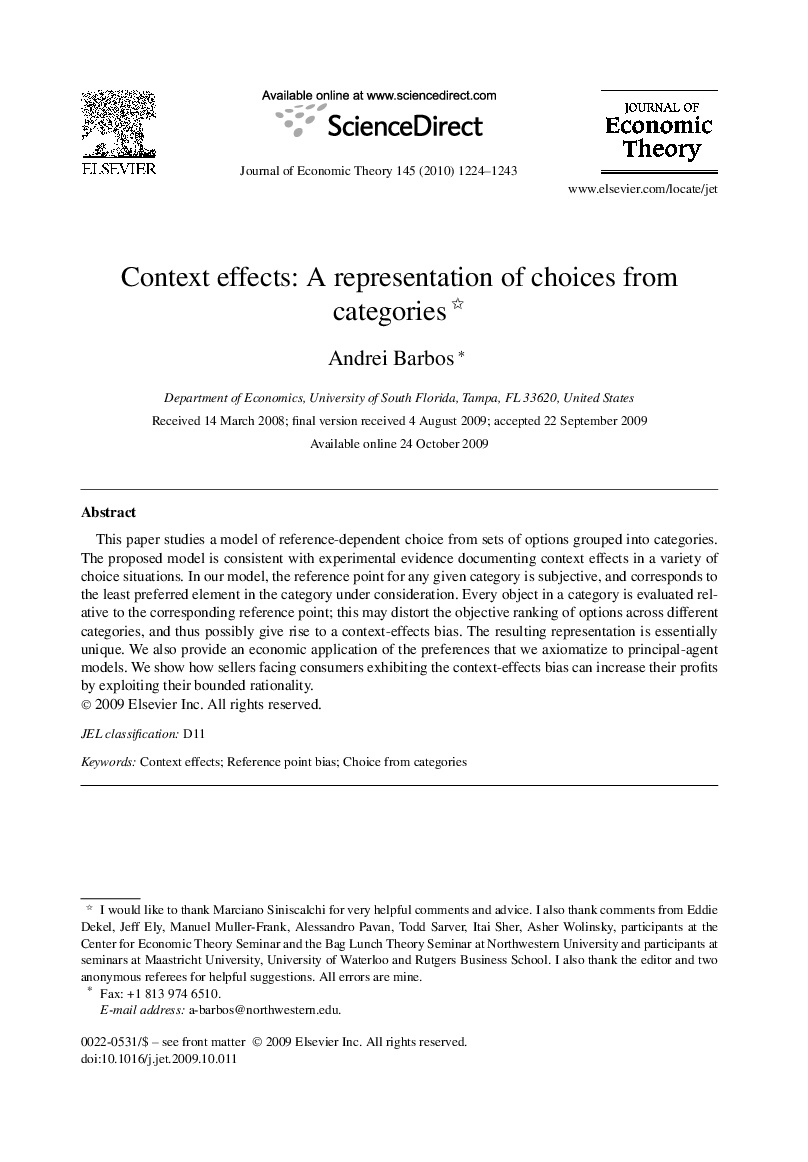| Article ID | Journal | Published Year | Pages | File Type |
|---|---|---|---|---|
| 957490 | Journal of Economic Theory | 2010 | 20 Pages |
This paper studies a model of reference-dependent choice from sets of options grouped into categories. The proposed model is consistent with experimental evidence documenting context effects in a variety of choice situations. In our model, the reference point for any given category is subjective, and corresponds to the least preferred element in the category under consideration. Every object in a category is evaluated relative to the corresponding reference point; this may distort the objective ranking of options across different categories, and thus possibly give rise to a context-effects bias. The resulting representation is essentially unique. We also provide an economic application of the preferences that we axiomatize to principal-agent models. We show how sellers facing consumers exhibiting the context-effects bias can increase their profits by exploiting their bounded rationality.
